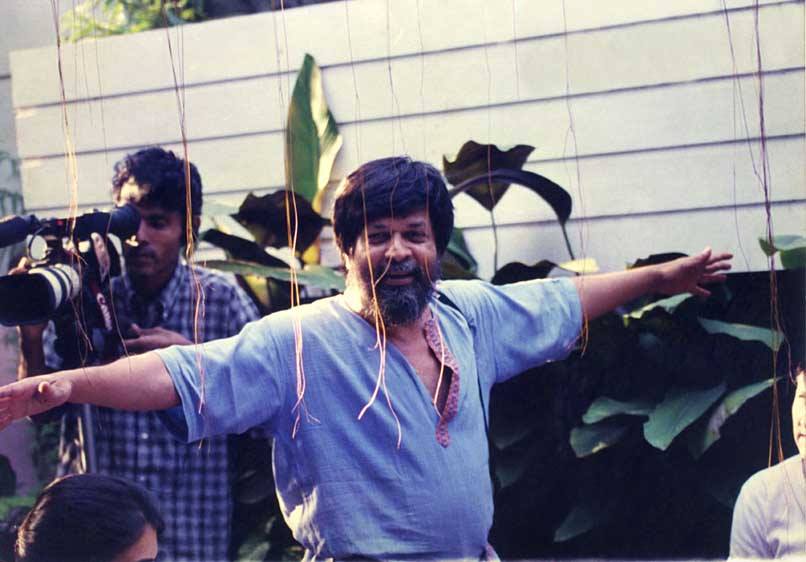Shahidul Alam is a Bangladeshi photojournalist, teacher, and social activist. A TIME “Person of the Year”, he is celebrated for his commitment to using his craft to preserve democracy in his country at all costs. See the project at http://mediastorm.com/clients/2019-icp-infinity-awards-shahidul-alam
Category: Crossfire
Shahidul Alam: Caught in the Crossfire of Bangladesh’s Fledgling Democracy
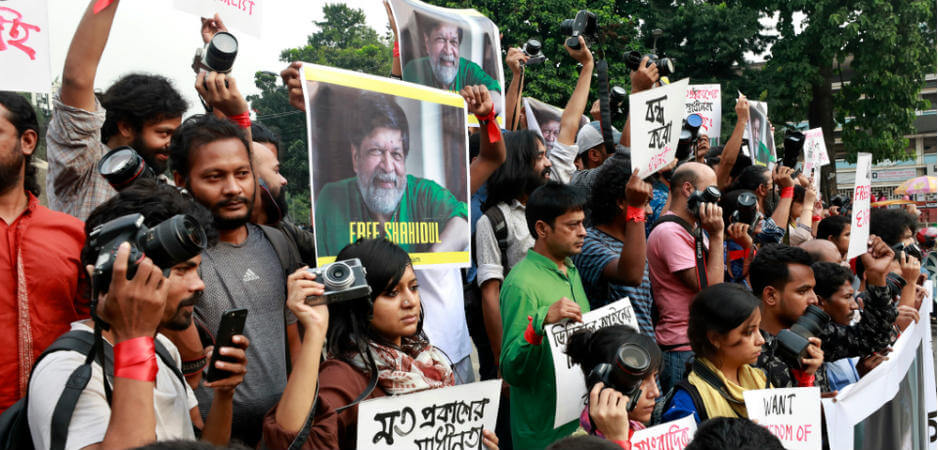
By Rachel Spence in Fair Observer • OCTOBER 24, 2018
How do you persuade a government to release a prisoner, however wrongfully incarcerated, if it doesn’t want to cooperate?
Thousands of signatures, tweets, Instagram and Facebook posts. Dozens of articles. Then there are the rallies: from Kathmandu to New York, from Rome to New Delhi, London to Mumbai. Week by week, hundreds of people are gathering in public spaces to protest against the incarceration in Dhaka, Bangladesh, of photographer, journalist, teacher and activist Shahidul Alam.
Among the most headline-grabbing initiatives is Wasfia Nazreen’s sky-high stunt. The mountaineer and social activist — the first Bangladeshi to climb the Seven Summits — flew over Manhattan in an airplane trailing a banner that read “Free Shahidul Alam. Free our teachers.” Another high-profile intervention was made by artist Tania Bruguera, who was herself locked up in her native Cuba after she offended the state censors, and recently devoted her Tate Modern exhibition in London to a display of Alam’s photographs. “What keeps you going when you’re in prison,” Bruguera told me, “are your principles. And the support of others around you.” Continue reading “Shahidul Alam: Caught in the Crossfire of Bangladesh’s Fledgling Democracy”
Lucie Awards Honoree Shahidul Alam for Humanitarian Award
Tribute video for 2018 Lucie Awards Honoree Shahidul Alam for the Humanitarian Award.
Presented at Zankel Hall at Carnegie Hall in New York City, Sunday October 28th 2018. Presented and Received by Gayatri Spivak.
2018 Lucie Awards Honoree: Shahidul Alam, Humanitarian Award from Lucie Foundation on Vimeo.
The Free Shahidul Campaign
I am unable to individually thank all the people who stood by me in those dark days, but I hope you will accept the heartfelt appreciation by me and the many others who were at the forefront of the fight to get me released. The case still stands and I face a potential maximum sentence of fourteen years. So the fight to drop the case must continue.
Shahidul Alam says he was not allowed to have a lawyer, despite his demands. And that he was beaten by his captors who wanted to coerce him into giving a statement. Video via Arfun A. #freeshahidul pic.twitter.com/Y57PatOVAY
— Tasneem Khalil (@tasneem) August 6, 2018
. @washingtonpost Analysis | #Bangladeshi photographer Shahidul Alam arrested over ‘provocative comments’ #wewantjustice #Bangladesh #ShahidulAlam #FreedomOfThePress https://t.co/sgxTQF0zcI
— Wasfia Nazreen (@wasfia) August 7, 2018
‘Deeply hurt by #ShahidulAlam’s detention, torture’: Photographer @RaghuRai1 writes to Bangladesh PM https://t.co/YWomnvjy3l pic.twitter.com/ue1U5cukgv
— scroll.in (@scroll_in) August 7, 2018
438 Indian eminent personalities demand Shahidul’s release
‘The Shahidul Alam I Know Is Gentle’
Urvashi Butalia writes about the times she met and worked with the Bangladeshi photojournalist, who was granted bail by the High Court in Dhaka after 102 days of detention.
I cannot now remember when I first met Shahidul Alam, but I think it was some twenty or more years ago when both of us served on the board of an organisation called Panos South Asia. My first impression of him was of a somewhat large, bearded man who spoke with an accent I could not place. It did not take long – perhaps a few hours – for this to change and for the warm, affectionate and caring human being to emerge.
To me, Shahidul came across that time as the best kind of nationalist. He loved – he still does – his country Bangladesh. His stint abroad – I never actually knew where he has studied or spent any time – had actually left this feeling much stronger in him. He told all of us about Drik, the photo agency that showcased photographers from the global South and that fiercely protected their rights and their work, refusing to accept that simply because they belonged to the South, their value was any the less. Drik charged for their photos as did international agencies, and why not, was Shahidul’s question. Continue reading “‘The Shahidul Alam I Know Is Gentle’”
Reply to Arundhati: Yes, We Will Rise
Dearest Arundhati,
It was a letter I read and reread long before it appeared before my eyes. It was through layers of metal bars that I strained to listen to Rahnuma’s words. At over 130 decibels, the noise made by us screaming prisoners, straining to hear and be heard, was akin to a crowded stadium or a fire siren. As she repeated her words over and over again, I faintly heard, Arundhati. Letter. It was just over a hundred days that I had been incarcerated. A hundred days since I’d slept on my own bed, fed my fish, cycled down the streets of Dhaka. A hundred days since I’d pressed my shutter as I searched for that elusive light.
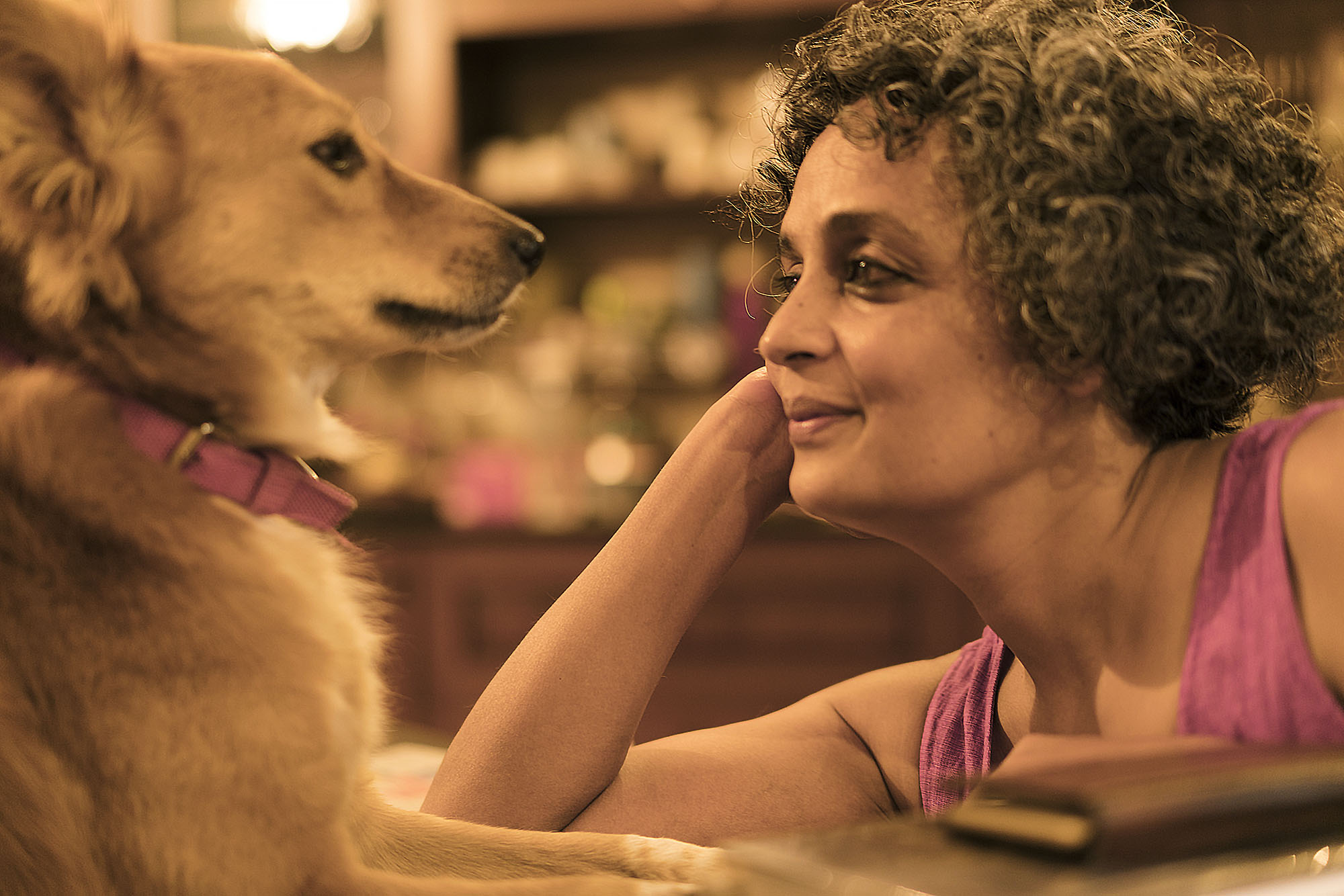
Those words, screamed out but barely heard was the nourishment I needed. Did you write it by hand? What was the paper like? In this digital age, you probably used a keyboard. What font had you used? What point size? And the words. Words that you so gracefully string together. I relished the imagined words. Your words. I missed words as I missed my bed, my fish and Rahnuma’s touch. When they asked me what I needed in jail, books were on top of my list. The first lot of books came in. Mujib’s prison diaries, Schendel’s History of Bangladesh, and the book you’d given me when we last met, The Ministry of Utmost Happiness. I’d been meaning to read it ever since we said goodbye in Delhi, but our lives had been taken over by the immediacy of our struggles. Now I had the time. Continue reading “Reply to Arundhati: Yes, We Will Rise”
Shifting the Lens
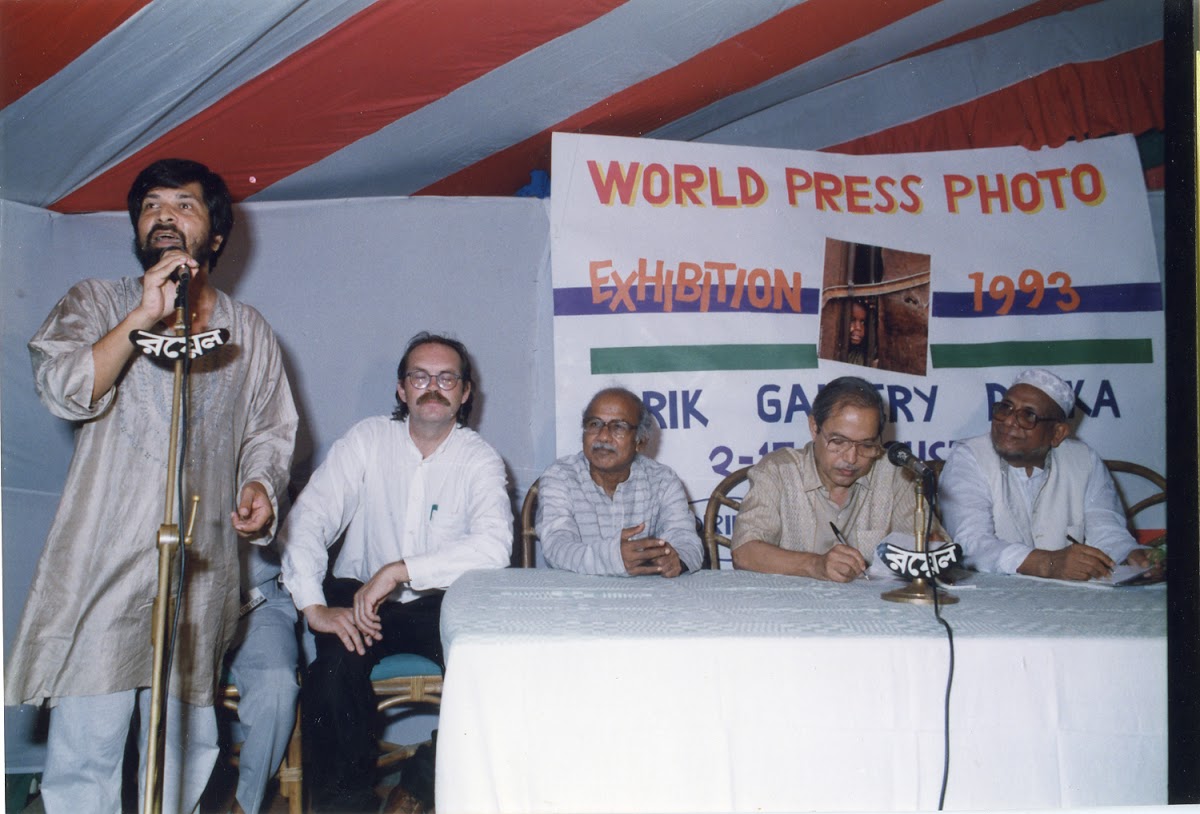
On the night of 5 August, a couple of dozen men turned up at the photographer Shahidul Alam’s house in Dhaka. They dragged him from his apartment, bound and screaming, smashing surveillance cameras on the way out. Alam’s partner, Rahnuma Ahmed, was with a neighbour, so she could not react in time. By the time anyone fully realised what was going on, Alam had been thrown into a white van and driven off into the night’s darkness.
The following is an excerpt from “The Man Who Saw Too Much: Why the Bangladesh government fears Shahidul Alam,” by Kaamil Ahmed, published in The Caravan’s latest issue, alongside Alam’s visual account of Bangladesh’s extrajudicial killings. Subscribe now to read in full. Continue reading “Shifting the Lens”
Fending with Fulcrums
Shahidul Alam, Guadalajara, Mexico
November 2017
There is no government I know that does not champion democracy and human rights in its rhetoric but also actively suppress both in its practice. It’s best to recognise that reality and work within it rather than fantasise on some ideal solution that has no relevance to everyday art practice. So we use the tactics of judo wrestlers, using the opponent’s weight and turning it to our advantage. We use fulcrums and gravity and capitalise on the inherent inertia of the establishment. We are nimble and fleeting. As Ali might have done, we flit like the butterfly and sting like the bee.

As Drik As Possible
The dot matrix Olivetti printer was noisy. The XT computer came without a hard drive: two floppy disks uploaded the operating system. When the electricity went (as it often did), we had to reload it. Our bathroom doubled as our darkroom. A clunky metal cabinet housed our prints, slides, negatives and files. Anisur Rahman and Abu Naser Siddique were our printers; I was photographer, manager, copy editor and part-time janitor. Cheryle Yin-Lo, an Australian who had read about us in a magazine, joined as our librarian. We offered and she happily accepted a local salary. My partner Rahnuma Ahmed often got roped in when we were short-staffed, which was often.
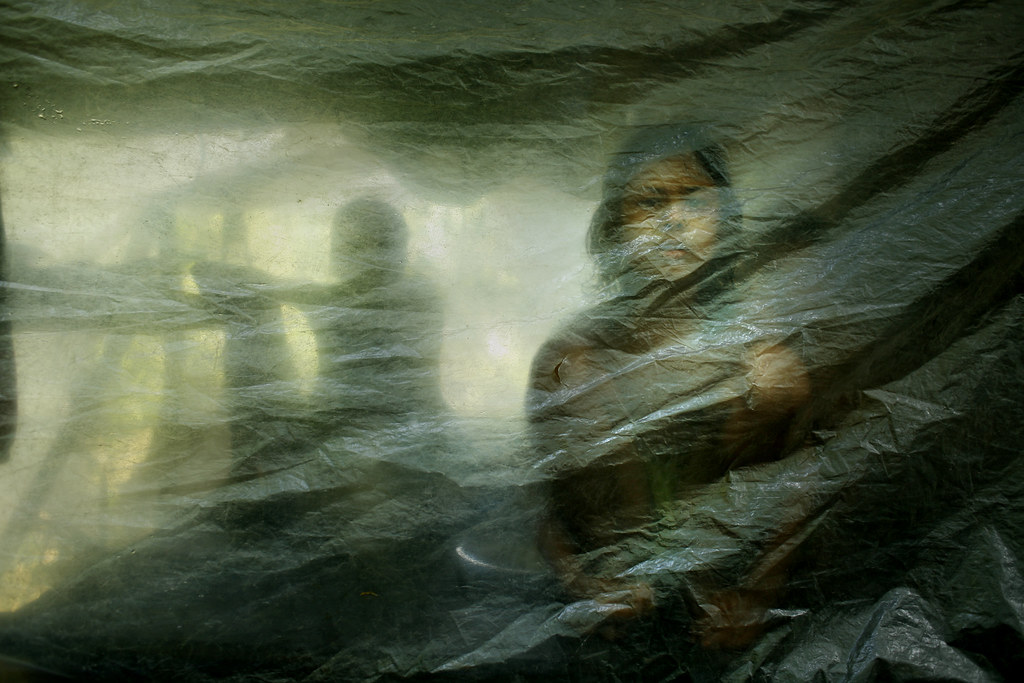
As Drik as Possible
Introduction to the Drik 2016 calendar.
A behind the scenes glimpse at a remarkable media phenomenon:
The dot matrix Olivetti printer was noisy. The XT computer came without a hard drive: two floppy disks uploaded the operating system. When the electricity went (as it often did), we had to reload it. Our bathroom doubled as our darkroom. A clunky metal cabinet housed our prints, slides, negatives and files. Md. Anisur Rahman and Abu Naser Siddique were our printers; I was photographer, manager, copy editor and part-time janitor. Cheryle Yin-Lo, an Australian who had read about us in a western magazine, joined as our librarian. We offered and she happily accepted a local salary.

